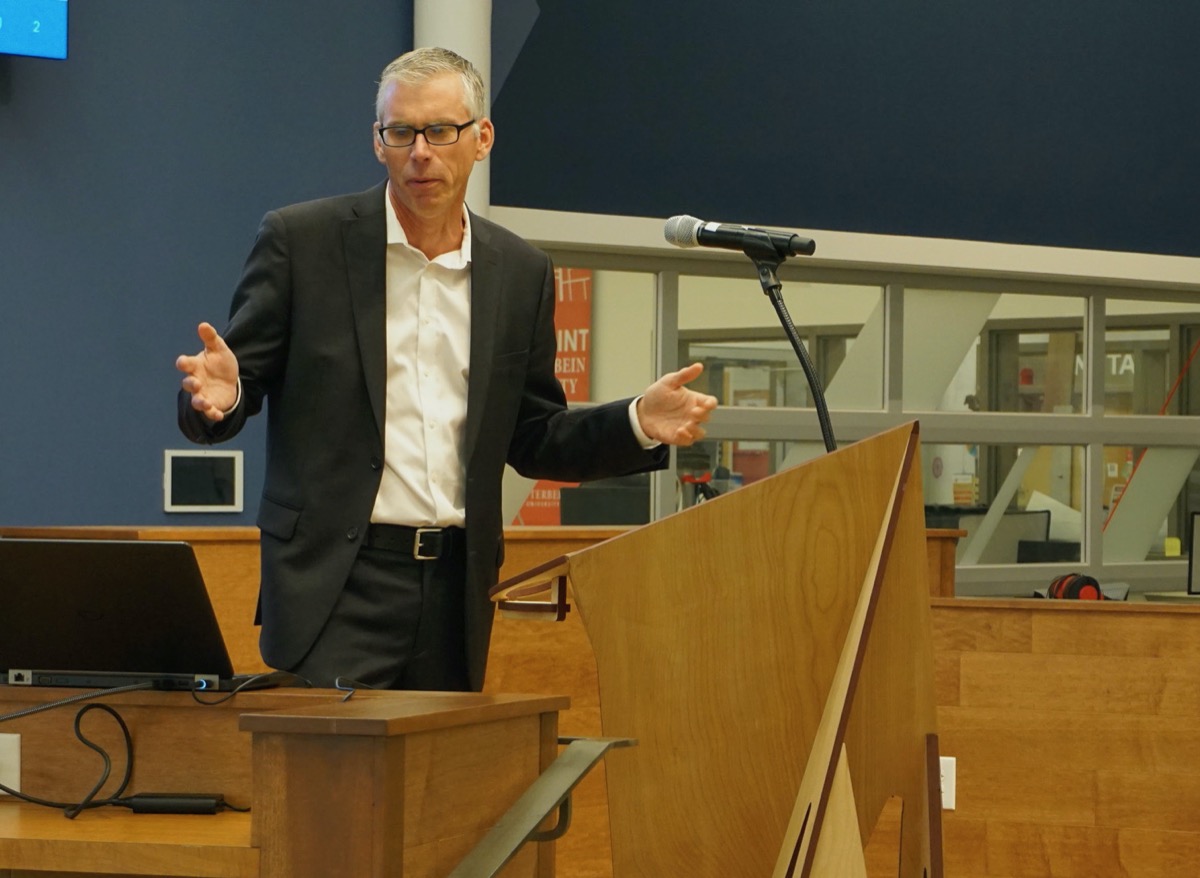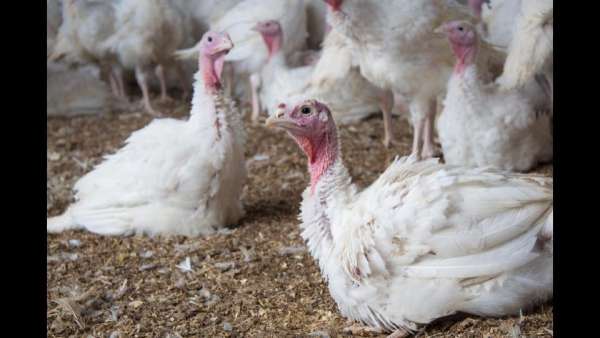
Jerron Schmoll, Product Lifecycle Manager at Corteva Agriscience, spoke to participants of the Ag Biotech Graduate Academy workshop at a recent industry dinner. This dinner provided teachers in the workshop an opportunity to hear about current research and development in agriculture and biotechnology and about careers in these fields.
Schmoll began with an explanation of the CRISPR process, a way of making precise edits in DNA. It has been used in medical applications, such as a disorder where the protein that carries the thyroid hormone and vitamin A folds incorrectly, resulting in fibrils that deposit in major organs. As the fibrils build up, organ function may be impeded, but CRISPR treatment inactivates the gene causing the disorder.
In agriculture, CRISPR allows scientists to customize elite breeding crosses with higher speed and accuracy. This allows desired outputs such as high tolerance to drought or resistance to disease.
Schmoll speculated about the future of CRISPR to help understand diseases and to build or enhance biological systems that make useful compounds, as well as to further understand fundamental genetic processes.
He encouraged teachers to get students to think about how basic biology was a key part of the early work on CRISPR, in terms of careers. “Nobody back then was trying to edit genomes; they just wanted to understand how the world worked and they stumbled upon something incredibly useful. It took 35 years of basic research to get to this point, so think about how many people were involved in this!”
This workshop, sponsored by Ohio Soybean Council and Pioneer, is just one of the many excellent events provided free to educators. Watch our website for more information!




Share this